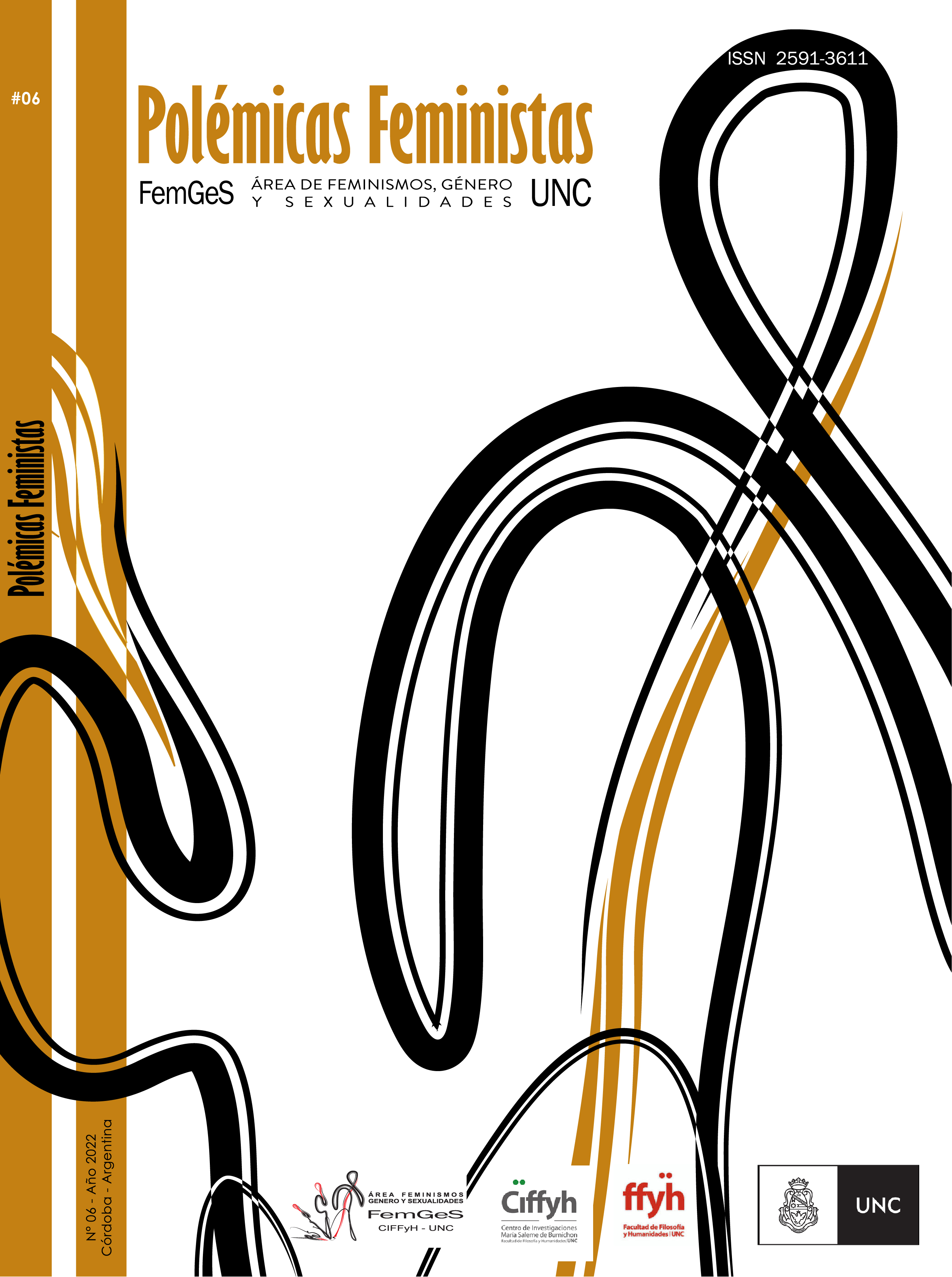When Thelma Fardín played Thelma Fardín. Uses of biodrama as an analytical category in social sciences.
Keywords:
Bio-drama, Feminisms, Biography, AgencyAbstract
In a constant and sometimes conflictive dialogue, scenic materialities, artistic variables and sociological categories will be put in tension once again to dialogue in an interdisciplinary key. From the case: Thelma Fardín in 2018 and her denunciation of sexual abuse that occurred in Nicaragua, when she was only 16 years old, the Actrices Argentinas movement is restructured and empowered in the public sphere, who support and form a support network for Thelma. If putting on paper the personal experience is autoethnography, staging the lived experience is: biodrama. This acting procedure studied by Vivi Tellas stresses the liminal interstices between reality/fiction, representation/presentation, lie/truth; It appeals to the documentary and biographical as materiality of communication and it is on this point where we will focus to investigate the capacity of agency of the procedure, not as an atomic, individual and essentialist entity, on the contrary, as a scaffolding located in a feminist scene, sororal and of community links, which permeates once again to reaffirm the biography, intimate, (the) personal, as (it is) political.
Downloads
References
Bourgois, Philippe (2010). En busca de respeto. Vendiendo crack en Harlem. Siglo XXI.
Butler, Judith (2010). Cuerpos que importan. Sobre los límites materiales y discursivos del “sexo”. Paidós.
Cardoso de Oliveira, Roberto (1996). El trabajo del antropólogo. Mirar, escuchar, escribir. Revista de Antropología vol. 39, Nº 1, pp. 13-17.
Cornago, Óscar (2005). Biodrama: sobre el teatro de la vida y la vida del teatro. Latin American Theater Review, vol. 39, n°1, pp. 5-28. https://journals.ku.edu/latr/article/view/1515
El País (2018, 11 de diciembre). Así es el vídeo de la actriz Thelma Fardín en el que denuncia a su abusador. [YouTube]. https://www.youtube.com/watch?v=y3lglVZALg4
Giddens, Anthony (2007). Las nuevas reglas del método sociológico. Crítica positiva de las sociologías comprensivas. Amorrortu.
hooks, bell (2017). El feminismo es para todo el mundo. Traficante de sueños.
Jaitt, Natacha [@NatachaJaitt] (2019, 22 de enero). Thelma Fardín, Calu Rivero, Dolores Fonzi y Griselda Siciliani nunca me respondieron ni siquiera para mentirme vía WhatsApp. [Tweet]. Twitter.
Justo von Lurzer, Carolina (2017). Esto le puede servir a alguien. Demandas de derechos en el espectáculo televisivo contemporáneo en Argentina. Revista Estudos em Comunicação n° 25, vol. 1, 23-52. https://doi.org/10.20287/ec.n25.v1.a03.
Ortner, Sherry B. (2016). Antropología y teoría social. Cultura, poder y agencia. UNSAM EDITA.
Reyes, Lautaro [@ReyesLautaroMdq] (2020 27 de julio). Indignado. Así dejaron a Zulma Lobato. [Tweet]. Twitter.
Rostagnol, Susana (2011). Trabajo de campo en entornos diversos. Reflexiones sobre las estrategias de conocimiento. Gazeta de Antropología, n° 27, vol. 1. http://hdl.handle.net/10481/15685
Sabugal Paz, Paulina (2016). Teatro documental: entre la realidad y la ficción. Investigación Teatral Vols. 6-7, Núms. 10-11. https://investigacionteatral.uv.mx/index.php/investigacionteatral/article/view/2533/4415
Silba, Malvina (2017, 9 de marzo). ¿Se puede ser feminista y escuchar cumbia? La Diaria, https://ladiaria.com.uy/articulo/2017/3/se-puede-ser-feminista-y-escuchar-cumbia/
Spataro, Carolina y Borda, Libertad (2018). El chisme menos pensado: el debate sobre aborto en Intrusos en el espectáculo. Sociales en Debate, n° 14. https://ri.conicet.gov.ar/bitstream/handle/11336/97213/CONICET_Digital_Nro.7090e917-73a6-465f-ba9b-d711b220d0a5_A.pdf?sequence=2&isAllowed=y
Downloads
Published
Issue
Section
License
Copyright (c) 2022 Leonardo Huici Capra

This work is licensed under a Creative Commons Attribution-NonCommercial-ShareAlike 4.0 International License.
From 2022: Attribution - Non-Commercial - Share Alike (CC BY- NC- SA 4.0)
From 2011 to 2021: Attribution - Non-Commercial - No Derivative Works (CC BY- NC- ND)






